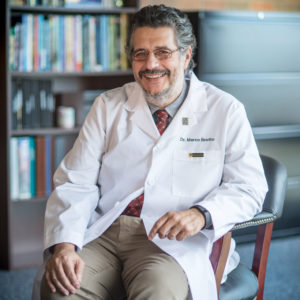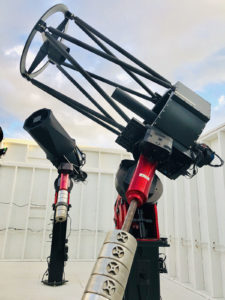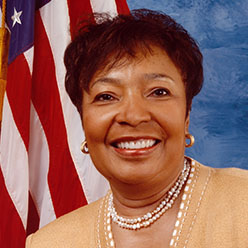![]() Every week, we do a little research of our own. We’re looking for scientists, professors, engineers, entrepreneurs—anybody, really—engaging in research and development across North Texas.
Every week, we do a little research of our own. We’re looking for scientists, professors, engineers, entrepreneurs—anybody, really—engaging in research and development across North Texas.
There’s plenty of good work being done. If you want to put R&D under your microscope, sign up for our e-newsletter.
A UTA professor gets $6.575M in grants to tackle musculoskeletal diseases
A professor in the UT Arlington College of Nursing and Health Innovation, Marco Brotto, will be spending the next five years researching better ways to take on a variety of debilitating musculosketal diseases.

Marco Brotto
And now, he has the backing of a series of grants totaling roughly $6.575 million to enable his work.
Brotto is an expert in bone and muscle physiology and sarcopenia, the progressive loss of skeletal muscle mass and muscle strength. He’s the George W. and Hazel M. Jay Professor in the college.
His funding will come in two grant renewals and in three new grants from the National Institutes of Health. It will support work in sarcopenia and osteoporosis, as well as new work on diabetic skeletal muscle disease and amyotrophic lateral sclerosis, which is also called Lou Gehrig’s disease.
Paul Fadel, the college’s associate dean for research, said Brotto’s work could lead to significant living improvements for the elderly and ultimately everyone.
UNT and the University of Dallas help bring telescope online
A collaboration that includes The University of North Texas and the University of Dallas in Irving has completed the restoration, updating, and installation of a half-meter Corrected Dall-Kirkland telescope located at the Dark Sky Observatory in West Texas.

The Corrected Dall-Kirkland telescope [Photo: Courtesy UNT]
The work was part of an informal collaboration that includes The Boyce Research Initiatives and Education Foundation (BRIEF), a San Diego-based nonprofit foundation that provides scientific and technical research opportunities to boost students’ educational experiences.
“A CDK telescope utilizes two mirrors, special lenses and a charge-coupled device (like those found in digital cameras) to produce extremely high-quality images,” Ron Diiulio, astronomy lab director at UNT’s College of Science, said in a statement. “This telescope will allow us to see a multitude of cosmic wonders such as planets outside of our solar system and variable stars.”
The Dark Sky Observatory is near the McDonald Observatory in the Davis Moutains area of West Texas.
According to UNT, scientists, researchers, and students will be able to access images and control the telescope remotely from anywhere an internet connection is available.
SMU Cox School of Business MBA students research Arcis Golf programs
Dallas-based Arcis Golf is collaborating with The Brierly Institute for Customer Engagement at the SMU Cox School of Business on a customer engagement research project that is intended to optimize fee-based membership programs at the company’s facilities nationwide.
Selected MBA students in the SMU Cox MBA program are working on the project, and will study Arcis Golf’s current membership programs and will suggest improvements and enhancements, according to a release.
“These students learn to develop strategies that build customer relationships, leverage digital and traditional media, measure financial impact, and create customer experiences, which engage customers to create loyalty and build value,” said Marci Armstrong, Harold M. Brierly Endowed Professor and director of the Brierly Institute for Customer Engagement.
Dallas VA Medical Center gets $624K grant for new ways to help vets
The Dallas VA Medical Center has been awarded a research grant totaling $624,000 to help it develop new methods to better serve veterans and their healthcare needs.

U.S. Rep. Eddie Bernice Johnson
The grant was announced this week by the office of U.S. Rep. Eddie Bernice Johnson, D-Dallas, chair of the House Committee on Science, Space, and Technology. The funding will be paid out over a four-year period, and is aimed at addressing the rates and determinants of decreased bone health among HIV-infected individuals.
The grant is administered by the U.S. Department of Veterans Affairs, which has funded research for more than 90 years. The Dallas VA Hospital received the funding via a highly competitive process that factors in ingenuity, innovation, and service to veterans, Johnson said.
“As chair of the House Science Committee, which oversees most of the country’s non-military research funding, I have made it a priority to fund programs that offer considerable benefit to the country, and programs that benefit our veterans may be the most noble endeavors we can support,” Johnson said in a statement.
READ NEXT
Discovery: UTD Scientist Finds Cause for Hot Batteries; BRIT, UNTHSC Collaborate on Research
![]()
Get on the list.
Dallas Innovates, every day.
Sign up to keep your eye on what’s new and next in Dallas-Fort Worth, every day.



























